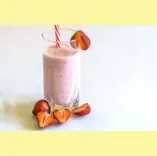Blog
My Encounter with a Humanitarian
By John Augustine, Agriculturalist and Nursery grower
In the era of unsung heroes, Norman E. Borlaug, Ph.D. stands out as one of the greats. Not many people know the name Norman Borlaug, but billions of people are able to eat because of his development of wheat, rice, millet and corn varieties.
Norman was a scientist, microbiologist, geneticist, plant pathologist, entomologist, and an agronomist specializing in cereal technologies. He was the father of the green revolution that bred these cereals to be high yielding, disease resistant and able to withstand nature’s harsh conditions.
Norman believed in manmade genetically altered varieties. He developed triticale, a manmade species of grain bred from a cross between wheat and rye that is superior in productivity and nutrition to its two parents.
Encounter with a Great Man
So why am I writing about Norman Borlaug? In the spring of 2000, I was on my grain farm in Iowa and read that Norman Borlaug was to speak at Drake University in Des Moines. I had followed Norman’s career for many years and admired him greatly. This was my chance to meet and possibly talk with him. So on a beautiful spring morning in Adair County, Iowa, I headed to an auditorium on the campus of Drake University.
I was thinking that maybe a couple dozen people would be at his talk, but to my surprise the auditorium, hallway and the entry were packed with students. At first I thought another lecture was going on or possibly I was at the wrong auditorium. No, they were there to hear Mr. Borlaug. I elbowed my way in and sat down in the stairwell as close to the front as I could.
There seemed to be a certain strain in the air as Norman began his talk. He spoke of his work on millet that was a basic grain in Africa. He wanted to make millet drought tolerant, more productive and more resistant to insects … and he wasn’t afraid to use genetic alteration to get these results. He explained how modern-day corn was once a grass and that “sometime about 10,000 to 15,000 years ago it changed.”
He talked of nature altering genes and that it’s okay if man and science work in these ways, as well. Immediately I knew why the students were anxious and tense. At the end of the lecture, several hundred students charged the podium and verbally attacked Mr. Borlaug, pointing their fingers and shouting how terrible it was to play with nature.
To quote Borlaug, “Doomsday seers have been proven wrong. I think this lack of perspective is true of our whole food situation. Our elitists live in the cities and are far removed from fields and have never been hungry.”
Anyway I waited for things to settle down and again elbowed my way up to where Norman was defending himself. I made my way up to his side and said, “Mr. Borlaug, my name is John Augustine and I would like to shake your hand and tell you what an honor it is to meet you.”
He moved closer to me and asked me what I did. I told him I owned a grain farm in Adair County. He asked, “You are an Iowa corn farmer?” I said, “Yes.” Then he looked me square in the eye and said, “Good, you’re a friend.” He grabbed me by the shoulders, put me in front of him and we backed out the side of the auditorium.
Outside we had a brief conversation about farming, corn, and the world food situation and where it was all headed. We said our good-byes and I left feeling great that I had met and talked to a hero of mine.
The students of Drake were wrong and rude.
On the 14th of September 2009, I read that Norman E. Borlaug had passed away. He was 95 years old.
While his work was highly controversial in many circles, he was acclaimed by many. Norman Borlaug received the Noble Peace Prize in 1970 in recognition of his contributions to world peace through increasing food supply, the U.S. Presidential Medal of Freedom in 1977, the Public Welfare Medal from the U.S. National Academy of Sciences in 2002, The Rotary International Award for World Understanding and Peace in 2002, the National Medal of Science in 2004, the Congressional Gold Medal in 2007, and in addition to many additional awards and accolades, 49 honorary degrees from universities in 18 countries. His plant introductions benefit billions of people.
Not bad for an Iowa farmer.
















